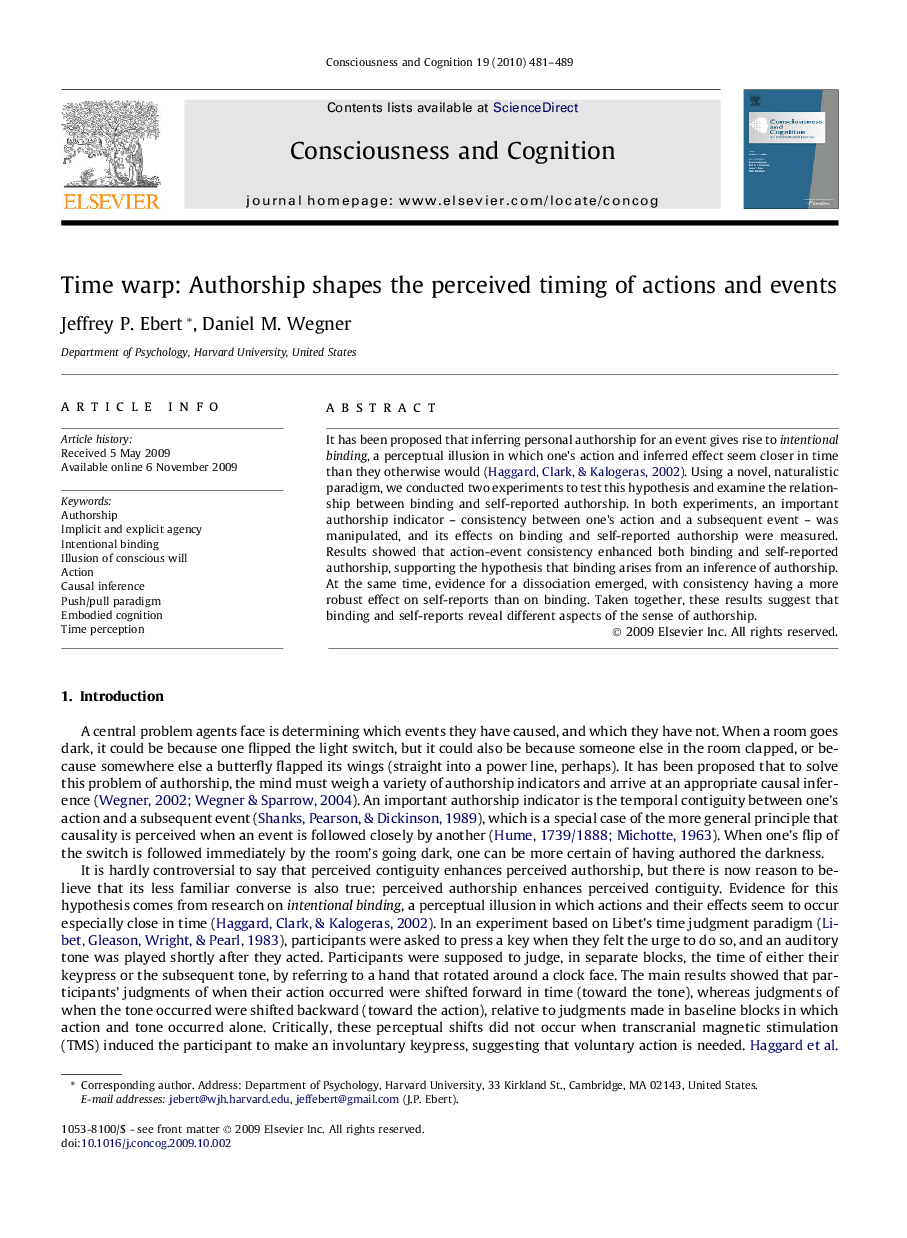| Article ID | Journal | Published Year | Pages | File Type |
|---|---|---|---|---|
| 10458802 | Consciousness and Cognition | 2010 | 9 Pages |
Abstract
It has been proposed that inferring personal authorship for an event gives rise to intentional binding, a perceptual illusion in which one's action and inferred effect seem closer in time than they otherwise would (Haggard, Clark, & Kalogeras, 2002). Using a novel, naturalistic paradigm, we conducted two experiments to test this hypothesis and examine the relationship between binding and self-reported authorship. In both experiments, an important authorship indicator - consistency between one's action and a subsequent event - was manipulated, and its effects on binding and self-reported authorship were measured. Results showed that action-event consistency enhanced both binding and self-reported authorship, supporting the hypothesis that binding arises from an inference of authorship. At the same time, evidence for a dissociation emerged, with consistency having a more robust effect on self-reports than on binding. Taken together, these results suggest that binding and self-reports reveal different aspects of the sense of authorship.
Related Topics
Life Sciences
Neuroscience
Cognitive Neuroscience
Authors
Jeffrey P. Ebert, Daniel M. Wegner,
